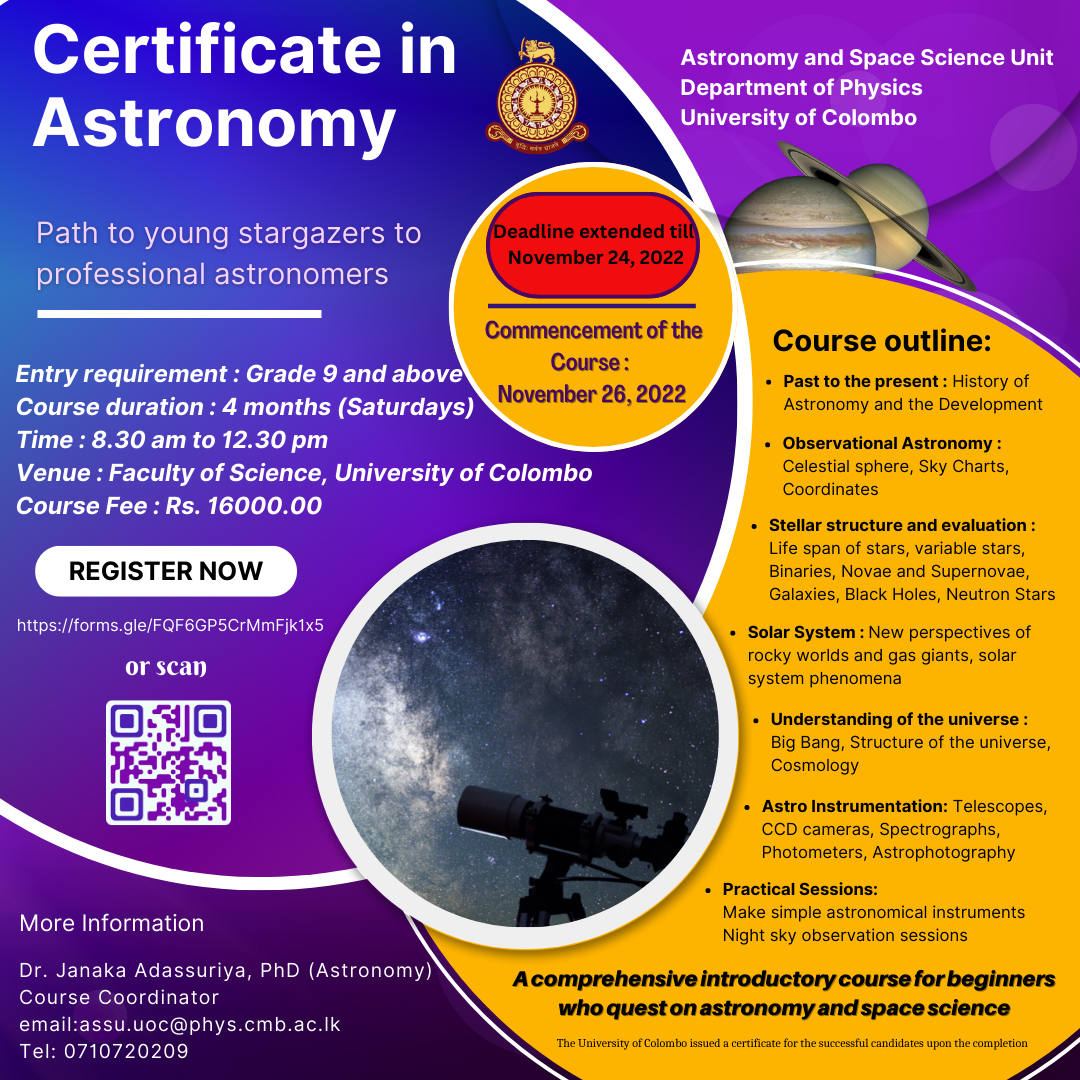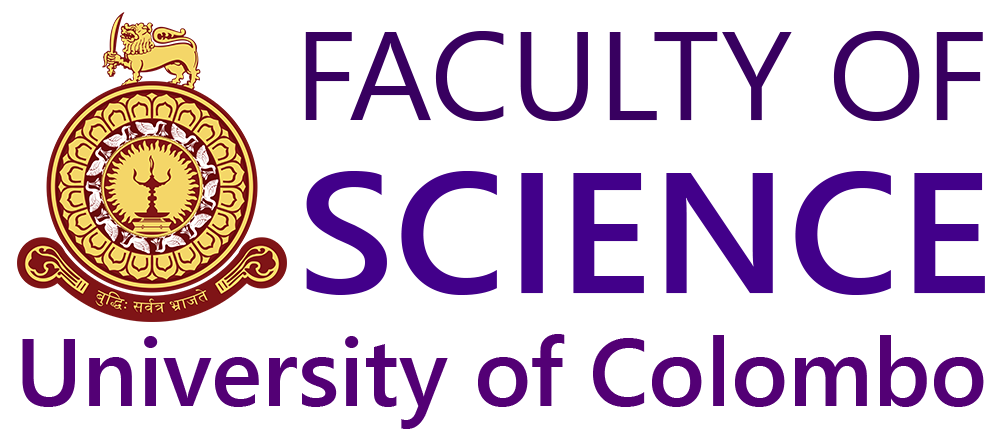Conducted by Astronomy and Space Science Unit, Department of Physics, University of Colombo
Observational Astronomy and the basics of Astrophysics are fundamental steps of learning scientific methods and promoting secondary scholars to a science curriculum. Access to such programs is severely limited to the student community of Sri Lanka. The Astronomy and Space Science Unit (ASSU), Department of Physics, University of Colombo intends to offer a series of short courses in Space Science and Observational Astronomy for the benefit of the general public of Sri Lanka.
The course provides an introduction to the field of Astronomy, allowing you to learn about observational astronomy, stars and galaxies, from the Sun to the Milky Way and beyond, and about the structure and formation of the universe. The sky observations and introduction to astronomical instrumentation will be covered in the practical sessions.
The course is prepared for the enthusiastic scholars in astronomy and space science who seek higher education in astronomy and train for the national and international competitions. The course teaches physically and more importantly the hands-on experience of handling modern telescopes and other instrumentations will be given.
Eligibility
Completion of primary education up to GCE Ordinary Level.
Commencement
Application deadline:October 29, 2022 November 26, 2022
HOW TO APPLY?
Registration form here ![]()
Application deadline:October 21, 2022 November 24, 2022
Course Fees
LKR 16,000/=
Course objective
To introduce fundamental concepts in astronomy giving more concentration on observations and interactive sessions.
Course Structure
The course will be conducted physically on Saturdays/Sundays from 8.30 am -12.30 pm. The course duration is 16 weeks.

Intended learning outcomes
The certificate holders shall be able to explain basic laws in astronomy and the present understanding of the solar system up to the galaxies, stellar structures and the universe. Thus, at the end of the course students will be able to:
- Describe or define concepts and astronomical terms from the syllabus
- Explain the natural astronomical phenomena.
- Solve elementary problems in basic astronomy
- Demonstrate elementary skills in measurement, log keeping and instruments.
- Read sky maps and operate astronomical software.
- Read the real sky; identify the constellations, stars and planets.
- Summarize simple scientific information and concepts and draw conclusions. (eg. Following observations and data sets)
Course Content
CA01 Module 1 – Observational Astronomy
History of astronomy; Ancient Greek astronomy, Geocentric theory, Heliocentric theory, Copernicus revolution, Kepler’s laws. Distance measurements. Astronomical time scales, Astronomical reference circles, Equinox (Vernal, Autumnal), Ecliptic system. Astronomical coordinate systems; Equatorial system, Horizon system. Reading Stars-maps.
CA02 Module2 – Solar system
Sun, terrestrial planets and gas giants, Formation and evolution of solar system. Sun; atmosphere, spots, flares, corona, etc. Earth systems; magnetic and geometric axis, Aurora, Moon, Lunar phases. Titis–Bode Law, Minor planets, Asteroids. Planetary orbits, Almanac, Astronomical phenomena; Eclipses and types, transits. Comets and small bodies.
CA03 Module 3 Astronomy Instrumentations
Types of telescopes – reflecting and refracting, Principle and working of reflecting and refracting telescopes, Types of telescope mounts, Binocular, Eyepieces and types, Filters, CCD camera, Sextant, Sundial etc. Ground-based telescopes, Space telescopes, Space missions: Mars missions, Solar system missions, Exo-planet missions.
CA04 Module 4 – Stellar structure and systems
Stars and their properties; Magnitude of star, Star distances, HR-diagram, Types of stars cluster, Binary system and types, Exo-planets. Cosmology: Galaxies; Milky Way, Types of galaxies, Clusters and Superclusters.
Assessment Criteria
End of the course examination (100%)
Certificate Awarding Criteria
A certificate will be issued upon successful completion of the course with ≥80% of attendance and a ≥50% score obtained on evaluation.
Further Information
For more inquires please contact

